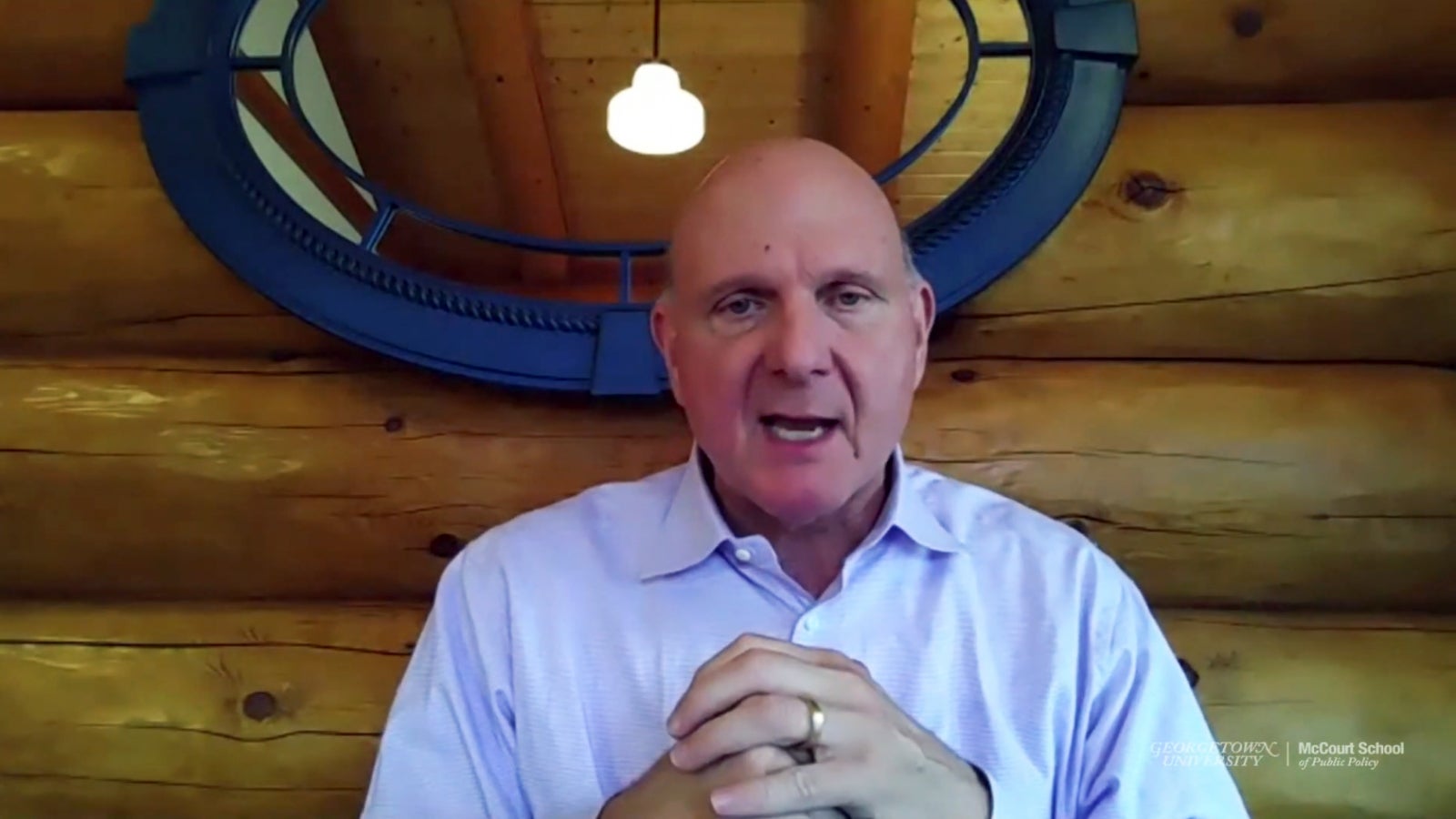Former Microsoft CEO Steve Ballmer Discusses the State of Education in Numbers with Policy and Data Experts
On March 18, former Microsoft CEO Steve Ballmer joined a discussion on the state of education in numbers with USAFacts data analyst Olivia Martin and Nora Gordon, economist and McCourt School associate professor.
At a virtual event hosted by the McCourt School of Public Policy, the Massive Data Institute, and USAFacts.org, policy professionals gathered to discuss key findings from a recent USAFacts report and the impact of the COVID-19 pandemic in education.
Former Microsoft CEO Steve Ballmer kicked off the conversation sharing why he founded USAFacts, a nonpartisan nonprofit in 2017. The main mission, he explained, is to help people ground policy debates in a comprehensive and unbiased set of facts by making government data more accessible and understandable.
“Without good numbers about what is going on, we are not going to make [policy] decisions very well,” Ballmer explained.
Ballmer presented a brief overview of the state of education in numbers noting that data showed early childhood and pre-k enrollment varies substantially by state and that two-thirds of eighth-graders in the United States are not proficient in math and reading.
Olivia Martin, data analyst at USAFacts, added that the COVID-19 pandemic further exacerbates existing disparities in education due to challenges such as a lack of access to virtual learning technology and less time spent learning.
McCourt School Dean Maria Cancian, who moderated the panel discussion, asked about any lessons learned related to government data during the creation of the USAFacts report. Ballmer said he is thankful for the sheer amount of data that the government collects while noting that the way government collects data is “not necessarily oriented to support decision-makers and the decisions they need to make.”
Government data can “help see what policies may work in a specific context,” added McCourt Professor Nora Gordon. Olivia Martin agreed and added that while government data “can be better and more responsive,” she is hopeful that more frequent updates of COVID-19 public health data lead to more comprehensive education data systems.
The event concluded with a student asking the panel for insight on the best sector ––business, government, or the nonprofit –– to work in to affect change and create impact in the education system. “Do whatever you like,” responded Nora Gordon. “You can make an impact in all of these ways and you can make even more of an impact if you are happy and you can keep doing it.”
